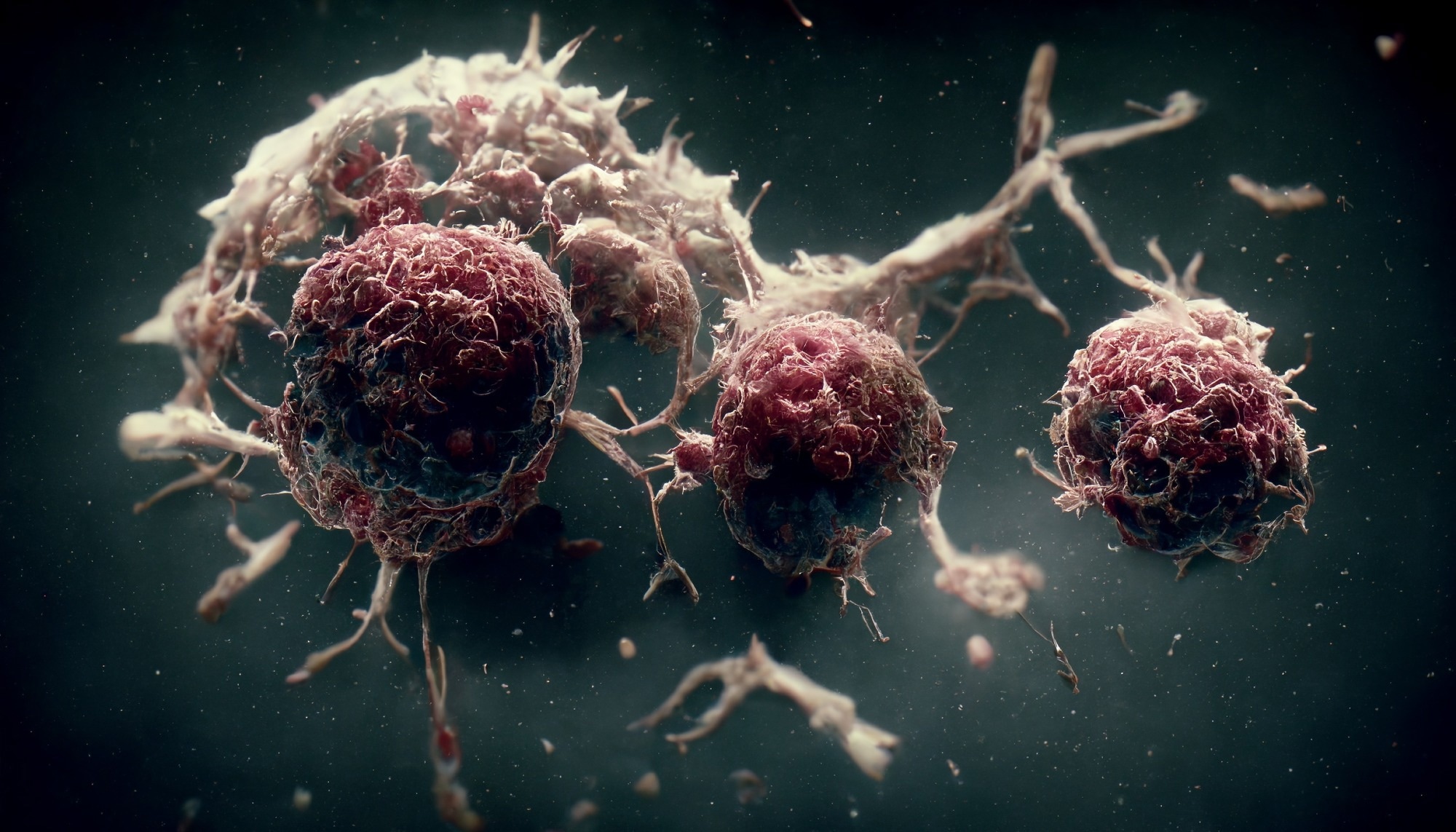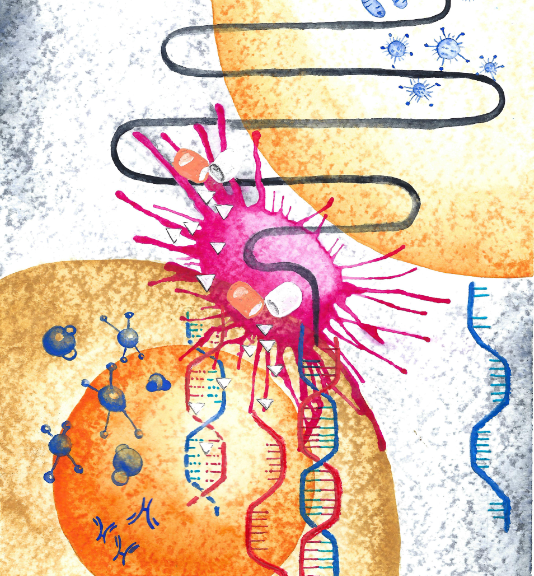Reviewed by Lauren HardakerSep 15 2025
An international team of scientists led by researchers from the MRC Laboratory of Medical Sciences (LMS), Imperial College London, and the University of Cologne discovered that microbes associated with tumors produce a molecule that can control cancer progression and improve chemotherapy efficacy.
 Image credit: CI Photos/Shutterstock.com
Image credit: CI Photos/Shutterstock.com
Most people are familiar with the bacteria on the skin or gut, but new research has found that tumors also have distinct bacterial populations. Scientists are exploring how these tumor-associated bacteria influence cancer development and treatment response.
A new study, published online in Cell Systems on September 10th, 2025, makes a big advance in this discipline by revealing a strong anti-cancer metabolite generated by bacteria linked with colorectal cancer. This result opens the door to new cancer treatment options, such as creating new drugs that might enhance the efficacy of existing treatments.
The researchers employed a sophisticated large-scale screening strategy to examine over 1,100 conditions in C. elegans, a small worm. They discovered that the bacterium E. coli created a chemical called 2-methylisocitrate (2-MiCit), which might enhance the efficacy of the chemotherapeutic medication 5-fluorouracil (5-FU).
The scientists used computer modeling to show that the tumour-associated microbiome (bacteria found within and around tumors) in patients might also create 2-MiCit. To test 2-MiCit’s efficacy, the scientists used two more systems: human cancer cells and a colorectal cancer fly model. In both cases, they discovered that 2-MiCit had powerful anti-cancer capabilities and might help the flies survive longer.

An artistic representation of tumor-associated microbes impacting the efficacy of anti-cancer drugs by Julie Schubert, an Admin Assistant from the Cabreiro Lab at the University of Cologne. Image Credit: MRC Laboratory of Medical Sciences (LMS)
We’ve known that bacteria are associated with tumours, and now we’re starting to understand the chemical conversation they’re having with cancer cells. We found that one of these bacterial chemicals can act as a powerful partner for chemotherapy, disrupting the metabolism of cancer cells and making them more vulnerable to the drug.
Filipe Cabreiro, Professor and Head, MRC Laboratory of Medical Sciences
The study revealed that 2-MiCit works by inhibiting a key enzyme within the mitochondria of cancer cells. This leads to DNA damage and activates pathways that reduce cancer progression.
The study discovered that 2-MiCit inhibits a crucial enzyme in cancer cells' mitochondria. This causes DNA damage and activates pathways known to slow the spread of cancer. This multipronged approach damages cancer cells and works in tandem with 5-FU. The combination killed many more cancer cells than either compound alone.
Microbes are an essential part of us. That a single molecule can exert such a profound impact on cancer progression is truly remarkable, and another piece of evidence on how complex biology can be when considering it from a holistic point of view. It is really exciting because we are only scratching the surface of what is really happening.
Dr. Daniel Martinez-Martinez, Study First Author and Postdoctoral Researcher, Laboratory of Medical Sciences (LMS)
This study demonstrates a team science approach, including contributions from the Metabolism and Cell Growth, Cell Cycle Control, and Redox Metabolism groups at LMS.
The researchers improved the 2-MiCit compound's efficiency in conjunction with medicinal chemists. This synthetic version was much more effective in killing cancer cells, highlighting the possibility for developing novel treatments based on natural microbial products.
Filipe added, “Using the natural microbial product as a starting point, we were able to design a more potent molecule, effectively improving on mother nature.”
These interesting findings illustrate how the cancer-associated microbiome influences tumor growth and how metabolites generated by these bacteria might be used to enhance cancer treatments. These findings are especially significant in the context of personalized treatment, highlighting the necessity of considering not only the patient but also their microbes.
Source:
Journal reference:
Martinez-Martinez, D., et al. (2025) Chemotherapy modulation by a cancer-associated microbiota metabolite. Cell Systems. doi.org/10.1016/j.cels.2025.101397